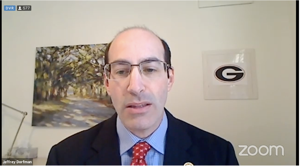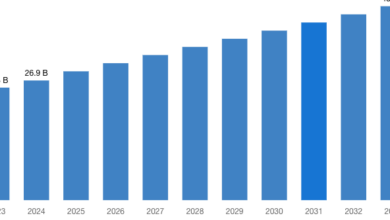State economist: Georgia business owners deserve credit for keeping state’s economy afloat

(The Center Square) – Georgia’s economic recovery from the COVID-19 pandemic should be strong and swift, the state’s fiscal economist said Tuesday.
Georgia’s economy has been supported by federal aid, a recovering job market and business owners’ improvisation, state economist Jeffrey Dorfman told the House and Senate appropriations committees during a joint meeting Tuesday.
“The federal government has passed out a lot of free money, and that has held our sales tax collections up. Withholding on the unemployment benefits has helped hold our income tax collections up,” Dorfman said. “Frankly, I think we need to put a lot of credit where it belongs. Business owners in Georgia, small and large, have done a tremendous job at finding ways to still carry out business and keep their businesses operating during a pandemic.”
Georgia’s economy is operating at 89% of where it was in early March, before the pandemic, according to Moody’s Analytics and CNN Business’ Back-to-Normal Index. December’s net tax collections in Georgia were up 7.7% compared with December 2019. Fiscal-year-to-date collections are up 6.1%.
Dorfman said personal income has increased because of coronavirus aid provided to states by Congress last year, including additional unemployment benefits for jobless workers.
Georgia recovered most of the job losses from business shutdowns caused by COVID-19 restrictions by November. The state had 4.6 million employees before the pandemic and 4.5 million in November, he said. Dorfman attributed the rebound to Gov. Brian Kemp’s early reopenings and business owners’ “ingenuity.”
Still, a significant number of the missing jobs were part-time positions, mostly worked at-will by college and high school students, or parents working to cover education expenses.
“That suggests that really our labor market is about as fully recovered as it can be until the pandemic is over,” Dorfman said.
The flow of aid also has led to an increase in consumer spending, even amid shutdowns.
“So we’ve never had a recession before where people had more money to spend than when the economy was growing, but we’re doing it now,” Dorfman said.
Georgians spent more money on food deliveries and home improvement projects, redirecting the sales tax revenue that dropped in other areas. The state’s marketplace facilitator law, which took effect in April, has helped transmit more revenue from online sales.
Georgians also have saved more money and increased their credit scores since the Coronavirus Aid, Relief and Economic Security (CARES) Act funding was released in late March and April.
“So the good news is that our citizens have been very financially responsible, have generally done the right thing and saved a lot of the money that the federal government has given them if they didn’t lose their jobs and didn’t need the money,” Dorfman said.
“The fact that credit card debt is down, our credit scores are up and our savings in the bank is up, all mean that when we’ve all been vaccinated, we have the pandemic under control and can get back to whatever the – will become normal after this – that our economic recovery should be quite strong and swift because people have the money to spend,” Dorfman said. “They’re just waiting for the chance when it is safe to do so.”
Even though the economy shows good strides, the state is facing a recession because its gross domestic product has decreased. Although many businesses have been able to pivot, major sports and entertainment venues and some restaurants and hotels have remained closed, stalling the state’s economic output. According to a recent University of New Hampshire report, Georgia’s GDP was down 2% from the end of 2019 to the third quarter of 2020.
Dorfman said the state’s savings and vaccinations could keep the economy afloat through the first part of fiscal year 2022, which starts July 1, but fallout may come from businesses that cannot operate without federal aid. Dorfman also expects large refunds this tax year in February, March and April.
Disclaimer: This content is distributed by The Center Square


